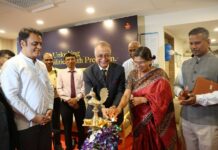While many Indian researchers pursued postdoctoral positions abroad, Dr Kishore Paknikar, former director of Pune’s Agharkar Research Institute (ARI), chose a different path. Instead of encouraging his students to chase academic laurels overseas, he urged them—sometimes gently, sometimes firmly—to become entrepreneurs. He believed that if science could solve real-world problems, it could also lead to products, processes, and enterprises that directly benefit society. This belief sparked a remarkable transformation.
Seven Startups Born from One Laboratory
Over the years, Dr Paknikar’s lab at ARI became a springboard for innovation. Today, seven startups—each founded or co-founded by his former students—have emerged from that single government-funded institute. These ventures span diagnostics, therapeutics, sustainable agriculture, bioinformatics, and clean technologies. On National Technology Day (May 11), their success stands as proof that a focused research lab can evolve into a cradle of entrepreneurship.
A Vision Rooted in Real-World Relevance
“It wasn’t glamorous back then,” recalled Dr Paknikar, now a visiting professor at IIT Bombay. “But the idea of building something meaningful, grounded in science, was always attractive. If you’re solving a real problem, society needs that solution—not just another publication.” Notably, this transformation occurred without formal incubators or venture capital at the institute.
Solving Arsenic Poisoning Leads to a Patent and a Startup
Dr Sonali Mokashi, founder of Cerulean Enviro Tech, was among those guided by Dr Paknikar during her PhD in the late 1990s. She vividly remembers the arsenic crisis in West Bengal, where nine districts faced severe contamination. Motivated to find a field-ready solution, she developed an arsenic filter with Dr Paknikar’s systematic guidance. The filter’s success caught the attention of the Department of Science and Technology, which commissioned three more units in Chhattisgarh.
Her work on water purification grew into a passion, leading to the establishment of a water testing lab and eventually, a patent for wastewater recycling. “That patent was the turning point,” Dr Mokashi said. “Today, our company is known for technical competence and strong social responsibility.”
Encouraging Innovation through National Platforms
Dr Paknikar consistently motivated his students to engage with national innovation competitions such as the India Innovation Pioneers Challenge. These contests helped them convert thesis ideas into business plans, and often led to seed funding and mentorship through government-backed programs. “Those early experiences gave students the confidence and direction to launch startups,” he noted. Over his career, he mentored more than 40 PhD students.
NeoDx and the Power of Diagnostic Innovation
One of his earliest students, Dr Prabhakar Kulkarni, credits Dr Paknikar with igniting his entrepreneurial mindset. As director of NeoDx Biotech Labs, Dr Kulkarni now leads a Bengaluru-based startup developing advanced molecular diagnostics. NeoDx supports innovations in point-of-care devices and RT-PCR kits for infectious diseases. “Innovation thrives when society supports it,” he said. “It takes just one visionary mentor and a curious team to turn research into social impact.”
A Growing Legacy of Science-Driven Startups
Inspired by Dr Paknikar, many students went on to establish startups including WeInnovate Biosolutions, Greenvention Biotech, Intignus Biotech, Novetrics Solutions, and Mrityunjay Herbals. These ventures reflect a shared philosophy: transforming scientific insight into tangible, scalable solutions.
India’s Expanding Deep-Tech Ecosystem
As reported by Indian Express, India now ranks as the third-largest startup ecosystem in the world, with over 1,17,000 DPIIT-recognised startups as of early 2025. More than 4,000 of these operate in deep-tech domains such as biotech, clean energy, and artificial intelligence. The Biotechnology Industry Research Assistance Council (BIRAC) alone has supported over 1,600 biotech startups—many, like those mentored by Dr Paknikar, emerging from academic institutions.
























